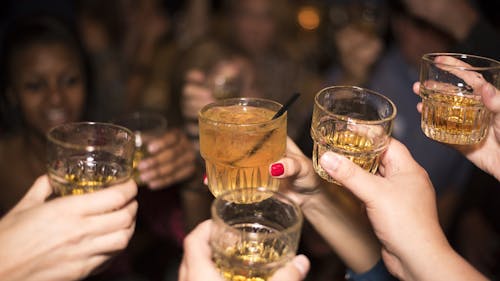Heavy alcohol use causes changes in DNA, Rutgers study finds

A Rutgers-led study found that binge and heavy drinking may cause a person's DNA to change, causing a cycle where they crave alcohol even more, according to Rutgers Today.
"We found that people who drink heavily may be changing their DNA in a way that makes them crave alcohol even more,” said Dipak Sarkar, senior author of the study, director of the Endocrine Program and distinguished professor in the Department of Animal Sciences. “This may help explain why alcoholism is such a powerful addiction, and may one day contribute to new ways to treat alcoholism or help prevent at-risk people from becoming addicted.”
According to a World Health Organization report, harmful use of alcohol has accounted for 5 percent of all global deaths. In 2016, more than 3 million people died due to alcohol misuse. Of these alcohol-related deaths, more than 75 percent of them were among men. Alcohol abuse has also been responsible for 5.1 percent of the worldwide number of diseases and injuries.
For the study, scientists from Rutgers collaborated with Yale University School of Medicine, focusing on two genes associated with the control of drinking. One gene was PER2, most known for its role in one's circadian rhythms. The other gene was POMC, which provides instructions for the body to regulate its stress response system.
The researchers compared three different groups: moderate, binge and heavy drinkers. They discovered that the two genes had changed in the groups with binge and heavy drinkers through methylation, which is a gene modification process influenced by alcohol. Binge and heavy drinkers also had lower rates of gene expression, meaning their genes created proteins slower. The more alcohol a person took in, the greater these changes were.
In an additional experiment, these drinkers were instructed to view stress-related, neutral or alcohol-related images. After being shown containers of beer and later tasting it, their motivation to drink had increased. Researchers found that changes in the genes of binge and heavy drinkers were associated with an increased desire for alcohol.
These findings may potentially be a way for researchers to identify biomarkers, which are measurable indicators including proteins or modified genes, that could predict someone's risk for binge or heavy drinking, Sarkar said.



